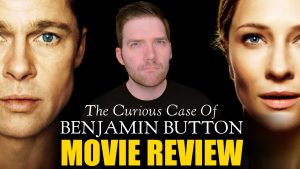Classic Music: Benjamin Button Soundtrack Review
Alexandre Desplat is no stranger to scoring romance and fantasy films: his career is littered with such fantastic highlights as The Painted Veil and The Golden Compass.
Now, for The Curious Case of Benjamin Button, a film which uniquely combines both of these genres, Desplat has provided a suitably complex and intimate score that rings out with brilliant clarity, yet remains somewhat unmemorable even after repeated listens.
Brilliant Instrumentation and Recording in Benjamin Button
As is typical for Desplat’s music, Benjamin Button is an undeniably brilliant composition: the depth and clarity of the music is astonishing, and it is drenched in Desplat’s light, prancing style, with dancing woodwinds, delicate piano, tingling light percussion, heart-melting harps and extremely light electronic accompaniment at times.
In order to suit the New Orleans-centered story of the film, Desplat also incorporates bass harmonica and slow, lilting saxophone passages: and, as usual for a Desplat score, each instrument is allowed time to shine out, contributing its unique voice to the larger tapestry of the score.
Consistent Tone, Differing Sounds
The score maintains a remarkable sense of continuity, despite some cues which differ greatly in instrumentation, if not in tone. The tingling electronic rhythms of “Mr. Gateau” and the peppy, quirky style of “Little Man Oti” are quite distinct from the delicate harp duet in “Children Games,” the delicate cimbalom in “Love in Murmansk,” or the saxophone and cello in the astoundingly lush “Sunrise on Pontchartrain” (an album highlight).
The only moments of any kind of tension occur in “Submarine Attack” and, to much lesser degree, “The Hummingbird.”
Umemorable Themes in Benjamin Button’s Music
The score contains its fair share of themes, but they are perhaps the weak point of the album: they are so simple and slowly presented that they make no lasting impression on the memory. As was the case with The Golden Compass (although to a greater extent in Button), a fantastically lush score with brilliant orchestration is somewhat counteracted by the lack of a tangible melodic “hook” to effectively engage the listener. The music is exceedingly pleasant, but not nearly as memorable as some of Desplat’s other works such as Girl with a Pearl Earring and Mr. Magorium’s Wonder Emporium.
Although the overall tone of the score is of a longing, romantic nature, it begins in a markedly more optimistic way than it ends: the shift from airs of cheery innocence in the earlier cues to melancholy reflection in the later ones causes the album to have a slightly depressing effect, and while this is understandable given the story of the film, it might be in the listener’s better interests (and in keeping with the forwards-backwards essence of the story) to listen to the score in reverse.
Summary
In sum, although the score to The Curious Case of Benjamin Button is a wonderfully lush and crystal-clear composition, its lack of memorable theme and much variation in tone makes it a pleasant but not overwhelmingly great score. It is indeed technically much better than a great many scores being composed today, but emotional connection and passion are not to be found in it.
Those seeking something memorable, winning and truly unique in Desplat’s career will be much better served by his concurrent score to the French action thriller, Largo Winch.





